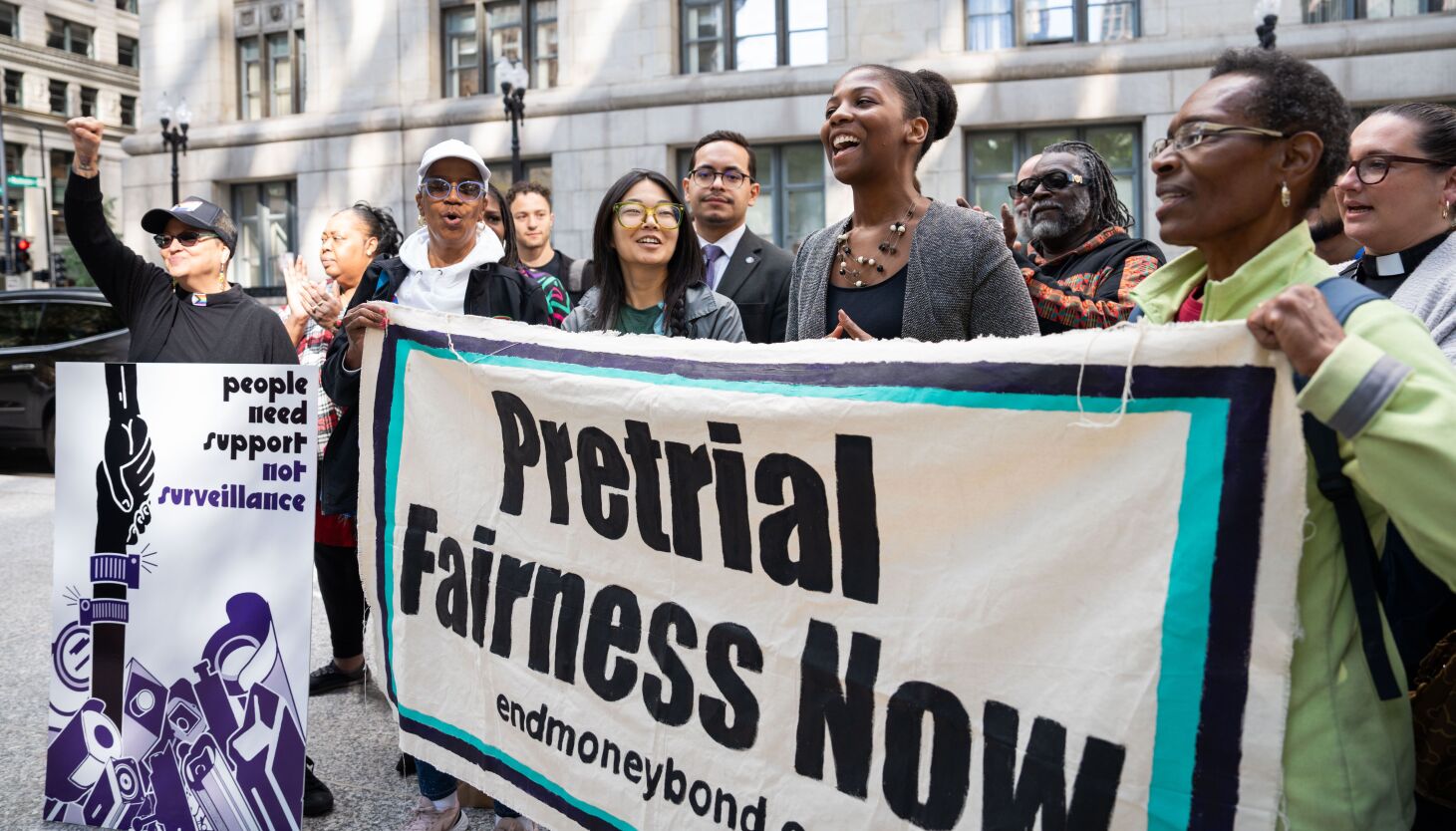Illinois became the first state in the nation Monday to completely remove cash bail as a condition to be released ahead of a criminal trial.
Here’s how the new system will work, with some questions still to be answered.
Who will not be jailed?
Under the new law, people charged with the state’s lowest level offenses will likely never set foot in a jail cell, including at a police station after their arrest.
People charged with an offense lower than a Class A misdemeanor — littering, some speeding charges and possession of marijuana over the legal limit — will likely be released with a citation and a court date without having to be processed at a police station.
What about more serious misdemeanors?
Class A misdemeanor offenses are slightly more serious, but still cover a lot of ground. They include shoplifting, simple battery, trespassing in a car or on property, possessing alcohol as a minor, and street racing.
A person facing a Class A misdemeanor will be arrested and taken to a police station for booking, but should be released with a future court date instead of being taken to jail.
The first question for authorities is whether, under the law, the offense allows the judge to jail someone. For example, a judge can detain a person accused of domestic violence, even when the person is charged with a misdemeanor.
In these cases, people usually face no more than six months in prison if convicted and often are released on probation without any incarceration.
However, law enforcement agencies will still be given discretion in certain cases. For example, if a person continues to commit the offense after being cited, they can be taken into custody and held until they appear before a judge, which must occur within 24 hours.
People can also be taken into custody if they can’t be properly identified, or if police believe a person poses a danger to the community or themselves. Police will have to explain their decision to hold the person.



They won’t go on the run, they’ll just be scofflaws and ignore the court date. Now they have a warrant out, and I would presume that means incarceration when they’re caught again.
If that’s not a provision, this is a bad idea. Otherwise I’m all for it. Let’s have IL test it out, see where we’re at in 5-years.
Yeah you’ve definitely hit on what I was thinking. I’m fully in support of a well thought idea being tested, I just worried about if there was a lack of a punishment for not showing up.